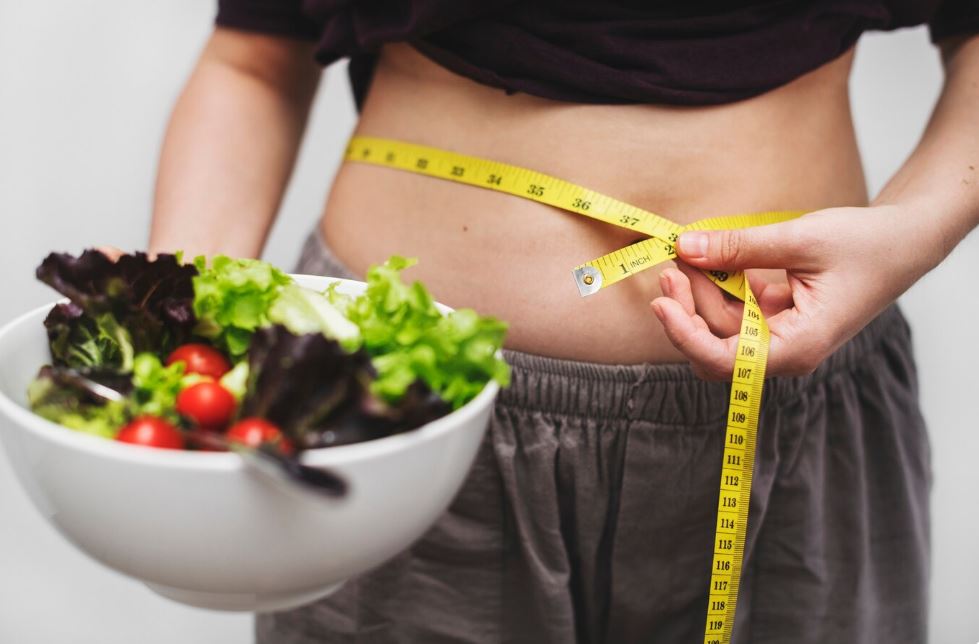
A good diet plan for fat loss is about forming long-lasting habits that change your relationship with food and fitness, not just about finding a quick fix. The cornerstone of any effective fat loss strategy is establishing a calorie deficit, or eating fewer calories than your body expels. However, the strategy should be exceptionally well-balanced, giving nutrients top priority and promoting long-term health. Let’s examine how a well-planned fat loss diet can increase metabolism, maintain muscle mass, and produce long-lasting effects.
Fat Loss Diet Breakdown:
| Component | Key Benefits | Foods to Include | Foods to Avoid |
|---|---|---|---|
| Calorie Deficit | Essential for triggering fat loss, helps with overall weight management. | Lean protein, fruits, vegetables, healthy fats. | Processed foods, sugary drinks, refined carbs. |
| Lean Protein | Supports muscle retention, boosts metabolism, helps with satiety. | Chicken, fish, eggs, tofu, beans. | Processed meats (e.g., sausages). |
| Fruits and Vegetables | Low in calories, high in fiber, supports overall health and fullness. | Leafy greens, berries, broccoli, carrots. | Canned fruits in syrup, fruit juices. |
| Healthy Fats | Promotes satiety, regulates hormones, supports heart health. | Avocados, nuts, olive oil, chia seeds. | Fried foods, excessive butter, fatty snacks. |
| Fiber | Regulates digestion, increases fullness, and balances blood sugar. | Whole grains, legumes, fruits, vegetables. | Low-fiber processed foods. |
| Hydration | Enhances metabolism, reduces hunger, supports digestion. | Water, herbal teas. | Sugary drinks, soda, and high-calorie juices. |
Essential Elements of a Successful Fat Loss Diet
Cutting calories is only one aspect of a fat loss diet; another is choosing foods that will fuel the body. Fundamentally, the diet should support muscle retention, increase metabolism, and make you feel fuller—all while efficiently burning fat. The secret to success is knowing these important diet components, regardless of whether you’re just beginning your journey or trying to maximize your current plan.
- The calorie deficit
The basis for fat loss is consuming fewer calories than your body expels. However, this calls for intelligent adjustments rather than drastic cuts. You can have filling meals without going overboard if you choose foods high in nutrients that keep you feeling full for longer.
- Give Lean Protein Priority for Muscle Preservation and Metabolism
In diets aimed at reducing body fat, lean protein sources such as fish, poultry, eggs, and tofu are highly effective. In order to sustain metabolic rate, they promote muscle retention. Additionally, because protein is so satiating, you will naturally consume fewer calories while still feeling full and energized.
- Fruits and Vegetables: The Low-Calorie Superfoods of Nature
Fruits and vegetables, which are high in fiber and nutrients, keep you full and support general health. They provide vital vitamins and won’t interfere with your calorie deficit because of their high water content and low calorie count. Your best friends should be fruits like apples and berries and vegetables like kale, spinach, and broccoli.
- Nutritious Fats for Prolonged Fullness
When it comes to losing weight, healthy fats are essential. Choose sources like avocados, nuts, and olive oil instead of avoiding them. In addition to promoting heart health, these fats increase satiety, which prolongs feelings of fullness. In actuality, you can drastically lower your total caloric intake without feeling deprived by substituting unsaturated fats for unhealthy ones.
- Fiber: The Weight Loss Unsung Hero
In addition to helping with digestion, fiber is essential for fat loss because it regulates blood sugar and makes you feel full. Foods high in fiber, such as vegetables, whole grains, and legumes, are especially helpful for anyone trying to control their weight.
- Reduce Sugary Drinks and Processed Foods
Sugary drinks and processed foods offer empty calories and frequently cause unintended fat storage. They can cause you to feel unfulfilled and overeat because they are low in nutrients. Reducing consumption of these foods is essential for fostering a long-term fat loss plan.
- Drink Plenty of Water for the Best Fat Burning
In the process of losing fat, water is extremely important. Drinking enough water can help control hunger and metabolism. Actually, it has been demonstrated that drinking water before meals increases feelings of fullness, which naturally lowers total caloric intake.
- Intermittent Fasting: An Effective Calorie-Control Method
Intermittent fasting is becoming a more and more common method of controlling caloric intake, though it is not required for everyone. Without having to actively monitor every meal, it can assist you in consuming fewer calories by limiting your eating windows. Intermittent fasting is a particularly helpful tactic for many people who want to lose fat over the long term.
The Foods That Make Losing Weight Simple
Fish, eggs, tofu, beans, and chicken breast are examples of lean proteins. These supply vital building blocks for metabolism and muscle.
- Fruits and vegetables that are low in calories and high in fiber include broccoli, carrots, apples, berries, and leafy greens.
- Nuts, avocados, olive oil, and chia seeds are good sources of fat.
- Whole grains, such as barley, quinoa, oats, and brown rice, help control blood sugar levels and maintain feelings of fullness.
- Low-Fat Dairy: Milk, Greek yogurt, and low-fat cheese are all great sources of protein.
The Foods You Must Limit
- Processed Foods: Steer clear of processed snacks, chips, candy, and fast food because they are heavy in unhealthy fats and empty calories.
- Sugary Drinks: Juices, sodas, and other sweetened drinks add extra calories without providing you with fullness.
- Refined Carbs: Steer clear of sugary cereals, white bread, and pasta as they can raise blood sugar levels and encourage the storage of fat.
Advice for Effective Fat Loss
- Meal Planning: To make sure you’re always choosing healthful options, organize your meals around complete, nutrient-dense foods.
- Cook at Home: You have more control over the ingredients in your food when you cook at home, which guarantees that it is wholesome and filling.
- Mindful Eating: To prevent overeating, pay attention to your hunger signals. When you’re satisfied, stop.
- Exercise Frequently: Incorporate regular exercise into your diet. Aerobic exercise and strength training are both very beneficial.
- Have patience: Losing fat takes time and requires regularity. For long-term effects, stick to your healthy routine.
